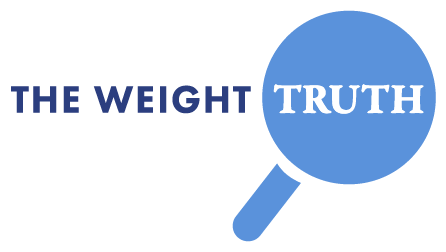The World Health Organization calls this flood of disinformation an infodemic: a deluge of information, some accurate, most deceptive, designed to mislead, confuse, and exploit. It spreads online at lightning speed and puts patient safety at risk.
As the nation’s oldest consumer organization—now in its 126th year—the National Consumers League (NCL) believes it is our duty to protect Americans from the rampant fraud infecting the weight loss drug market. That’s why we launched The Weight Truth, a national mobilization to combat the falsehoods circulating online about GLP-1s.
The Wild West of the GLP-1 Market
The FDA declared the GLP-1 medication shortage over in April 2025. When the shortage began in 2022, due to high demand and limited supply, the FDA permitted licensed compounding pharmacies to fill the gap by preparing so-called compounded versions of these drugs. This temporary fix, however, opened the door to a sprawling marketplace of both legitimate and illicit non-FDA approved versions of GLP-1s.
While compounding outside of a shortage situation is appropriate for individual patients with unique medical needs such as allergies to specific ingredients in commercial medications, children who need special dosing, or those with difficulty swallowing pills, compounded drugs are not required to meet the high level of safety, efficacy, and good manufacturing processes standards for drugs that have received FDA approval. Simply put, they are not made using the same guardrails as FDA-approved versions and have not been tested in large populations, so they pose more potential risks to patients. They therefore should never be produced on a mass marketing basis except in very limited situations where the FDA has declared a shortage of drugs in high demand.
Hundreds of millions of doses of both legitimate compounded products and illegitimate GLP-1s flooded the market, and many claimed – without any proof – the same or better benefits than FDA-approved versions.
Data shows that consumer health has taken a hit. As of February 2025, the FDA received over 775 adverse event reports for compounded GLP-1 drugs, including reports of 17 deaths and over 100 hospitalizations. Moreover, poison control centers report nearly a 1,500 percent increase in calls since 2019 related to overdosing or side effects of injectable GLP1 usage. Because most compounding pharmacies are not required to report adverse events from compounded drugs, the FDA indicates it is “likely that adverse events from compounded versions of GLP-1 drugs are underreported.”
May 22: A Turning Point for Consumer Safety?
We should be at a turning point — the FDA has stated that as of May 22, companies should no longer mass-produce compounded GLP-1s. If they do, they will be in violation of the Food, Drug, and Cosmetics Act and may be subject to penalties, recalls, and other sanctions.
This FDA-issued deadline should provide clarity for consumers who need GLP-1 medications, since as of that date, only products that are “FDA– approved” and are prescribed by a medical professional should be on the market.
However, NCL is concerned that, as a result of this “infodemic,” the marketing of compounded and other nonlegal weight loss products will continue and will confuse and hide facts from consumers and patients who are trying very hard to manage chronic diseases like obesity. We must ensure compounders abide by these important regulatory rules.
Our concerns are not unfounded. The recent NCL national survey of perceptions of compounded GLP-1 products sold online shows significant confusion about GLP-1 products amongst women. Key findings include:
-
- 85% believe the false claims made in online ads for compounded GLP-1s.
- 71% believe compounded GLP-1s must be tested and proven safe to be sold.
- 53% think compounded GLP-1s are FDA-approved.
- 49% believe they contain the same active ingredients as the real thing.
None of these beliefs are true.
A Blueprint for National Action
Both the FDA and consumers have roles to play in addressing this infodemic. We urge the FDA to enforce federal law and its long-standing safety-guided standards for compounded products now that GLP-1 products are no longer in shortage. We also call on consumers to take specific steps to learn the truth about GLP-1s and understand what’s FDA-approved, fake, and what’s at risk. Here’s what consumers can do:
- Know that the compounded versions of GLP-1s that were substitutes for the FDA-approved medicines are not permitted on the market after May 22, and if you see them, it’s a red flag.
- Educate yourself by going to The Weight Truth website.
- Be aware that FDA-approved GLP-1s are not found in gummy, chewable, patch, nasal, or sublingual forms.
- Ask the healthcare provider or company selling you the GLP-1 if it’s the brand product.
- Report fake GLP-1s to us through The Weight Truth website.
Join us as we seek to spread the word about the weight truth and replace misinformation about GLP-1 medications with the truth.

















